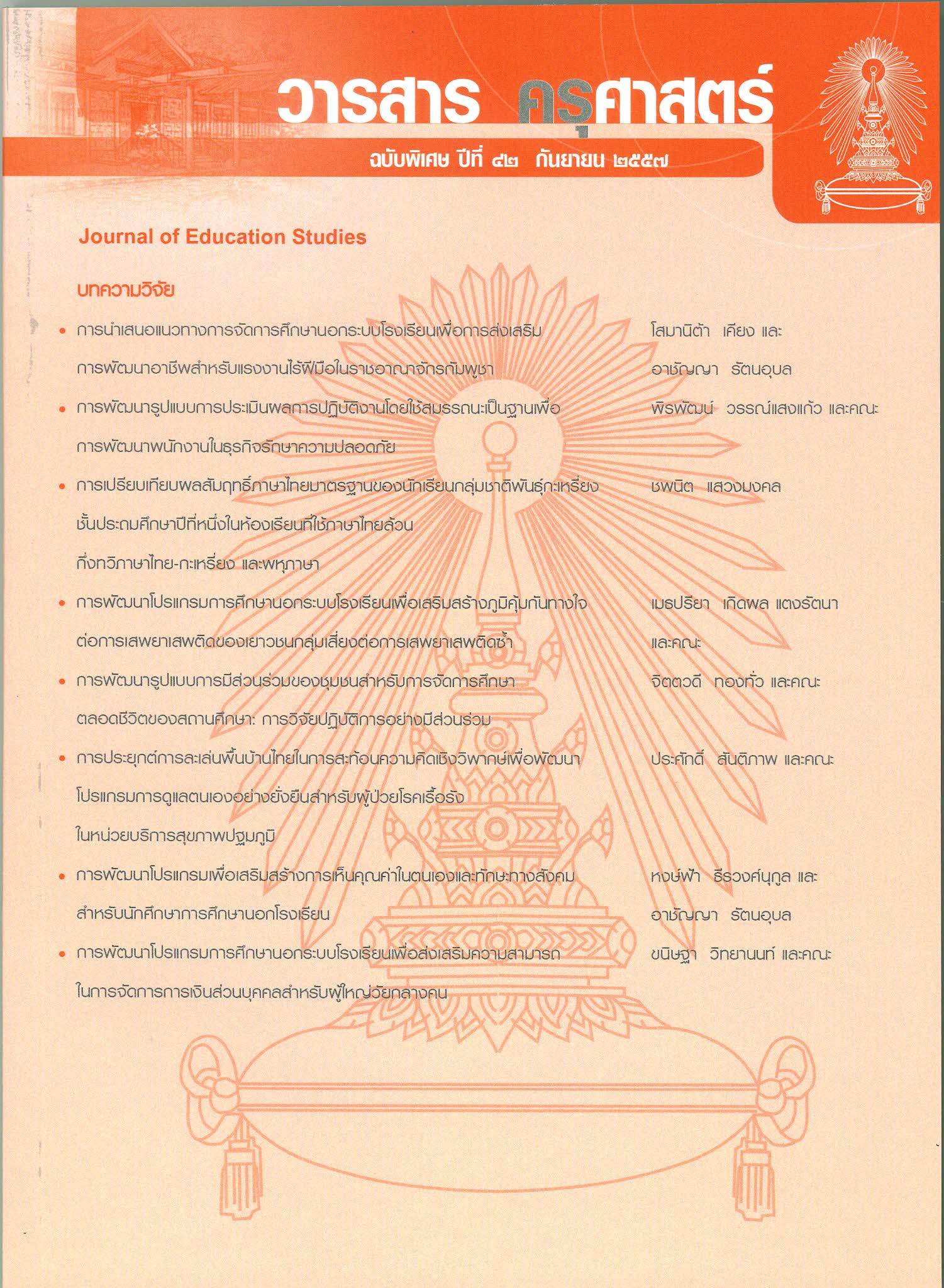A Comparison of Standard Thai Achievement of Ethnic Karen First Grade Students in Monolingual Thai, Informal Bilingual Thai-Karen, and Mother Tongue-based Multilingual Education Classrooms
Keywords:
INFORMAL BILINGUAL THAI-KAREN CLASSROOM, MOTHER TONGUE-BASED MULTILINGUAL EDUCATION CLASSROOMAbstract
The purposes of this study were firstly to compare the achievement of ethnic Karen first grade students in 3 types of classrooms: monolingual Thai, informal bilingual Thai-Karen, and mother tongue-based multilingual education or MTB-MLE, and secondly, to study the correlation between studentsû literacy and speaking accuracy. The subjects were 76 ethnic Karen students from 3 different schools in Educational Service Area Office 5, in Chiang Mai Province. The instruments consisted of a reading aloud test, a writing test, and a speaking test. The statistical methods used in this study were mean, standard deviation, one-way ANOVA, Scheffe post hoc comparisons, and the Pearson Product Moment correlation. The results showed that students from the informal bilingual classroom achieved a mean score which was significantly higher than that achieved by students from the monolingual Thai classroom. Furthermore, students in the MTB-MLE classroom showed a significant correlation between literacy achievement and speaking accuracy in Thai. This correlation was higher than those from the informal bilingual and the monolingual Thai classrooms respectively. Therefore, it appears that the classroom environment where the studentsû mother tongue was not used was disadvantageous for studentsû acquisition of standard Thai.Downloads
How to Cite
Sawaengmongkon, C. (2014). A Comparison of Standard Thai Achievement of Ethnic Karen First Grade Students in Monolingual Thai, Informal Bilingual Thai-Karen, and Mother Tongue-based Multilingual Education Classrooms. Journal of Education Studies, Chulalongkorn University, 42, 33–47. retrieved from https://so02.tci-thaijo.org/index.php/EDUCU/article/view/26458
Issue
Section
Research Articles




